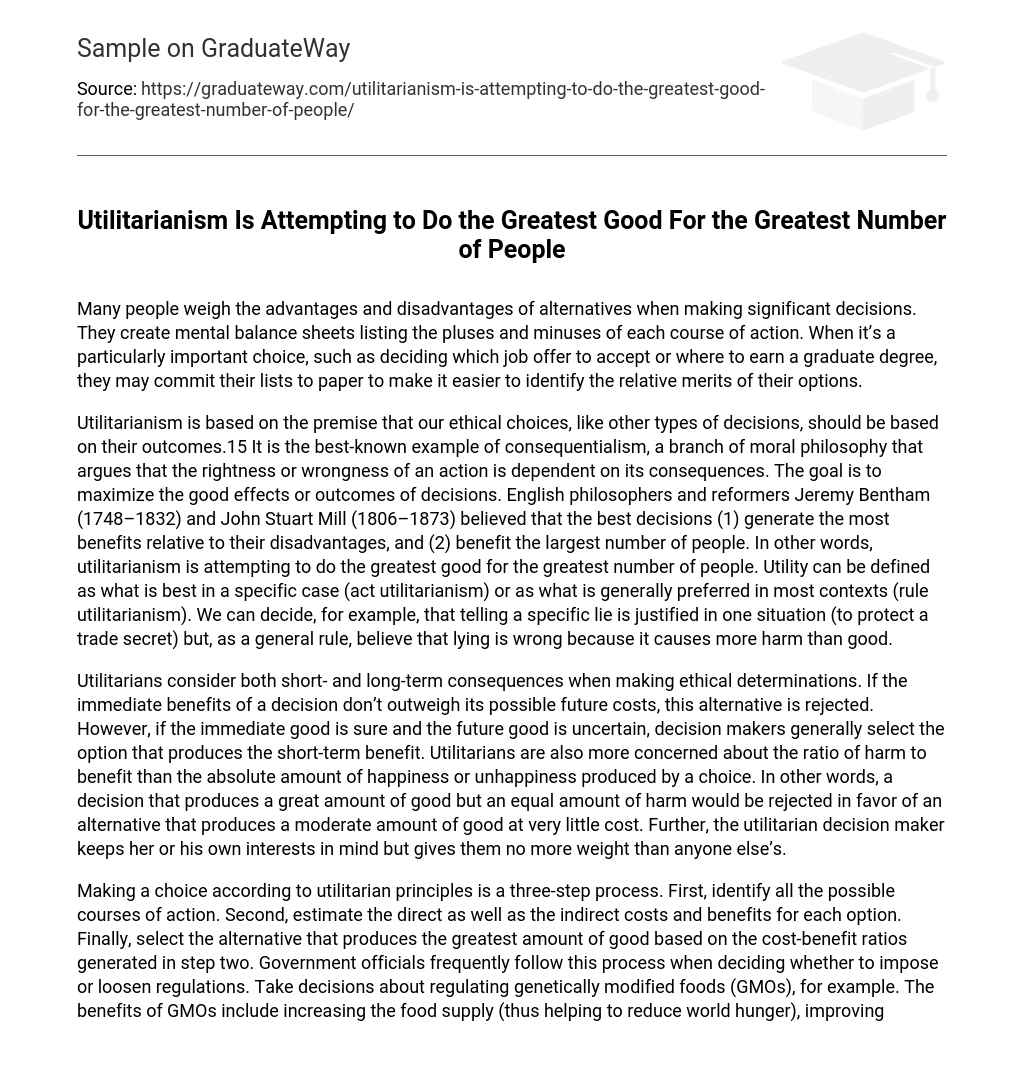Many people weigh the advantages and disadvantages of alternatives when making significant decisions. They create mental balance sheets listing the pluses and minuses of each course of action. When it’s a particularly important choice, such as deciding which job offer to accept or where to earn a graduate degree, they may commit their lists to paper to make it easier to identify the relative merits of their options.
Utilitarianism is based on the premise that our ethical choices, like other types of decisions, should be based on their outcomes.15 It is the best-known example of consequentialism, a branch of moral philosophy that argues that the rightness or wrongness of an action is dependent on its consequences. The goal is to maximize the good effects or outcomes of decisions. English philosophers and reformers Jeremy Bentham (1748–1832) and John Stuart Mill (1806–1873) believed that the best decisions (1) generate the most benefits relative to their disadvantages, and (2) benefit the largest number of people. In other words, utilitarianism is attempting to do the greatest good for the greatest number of people. Utility can be defined as what is best in a specific case (act utilitarianism) or as what is generally preferred in most contexts (rule utilitarianism). We can decide, for example, that telling a specific lie is justified in one situation (to protect a trade secret) but, as a general rule, believe that lying is wrong because it causes more harm than good.
Utilitarians consider both short- and long-term consequences when making ethical determinations. If the immediate benefits of a decision don’t outweigh its possible future costs, this alternative is rejected. However, if the immediate good is sure and the future good is uncertain, decision makers generally select the option that produces the short-term benefit. Utilitarians are also more concerned about the ratio of harm to benefit than the absolute amount of happiness or unhappiness produced by a choice. In other words, a decision that produces a great amount of good but an equal amount of harm would be rejected in favor of an alternative that produces a moderate amount of good at very little cost. Further, the utilitarian decision maker keeps her or his own interests in mind but gives them no more weight than anyone else’s.
Making a choice according to utilitarian principles is a three-step process. First, identify all the possible courses of action. Second, estimate the direct as well as the indirect costs and benefits for each option. Finally, select the alternative that produces the greatest amount of good based on the cost-benefit ratios generated in step two. Government officials frequently follow this process when deciding whether to impose or loosen regulations. Take decisions about regulating genetically modified foods (GMOs), for example. The benefits of GMOs include increasing the food supply (thus helping to reduce world hunger), improving quality and taste, making crops more disease resistant, and reducing the need for pesticides and herbicides. Costs include introducing allergens and toxins, increased human resistance to antibiotics, lower nutrient content, and creation of herbicide-resistant “super weeds.” After balancing the costs and benefits, the United States has approved the use of genetically modified food without labeling (60% to 70% of processed foods in U.S. grocery stores have genetically modified ingredients). The European Union, on the other hand, largely bans their use, arguing that the risks to human health and the environment are too great.16





